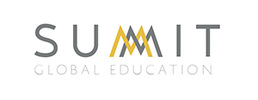ENT 327: Global Entrepreneurship in the European Union
Purpose:
Introduction:
Course Description:
Course Objectives:
Students:
Prerequisites:
Course Requirements:
Teaching Procedures and Methodology:
Recommended Readings:
Supplementary Readings:
Project (Market Entry):
I. Product and Company Selection II. Market Analysis - Europe III. Market Entry Strategy IV. Location Project - Deliverables:
Academic Hours
Components of Final Grade: Midterm exam 20% Final exam 30% Team project 20% Participation 10% Introduction to the EU 20% Grading Scale: A 93 - 100% A- 90 - 92.9% B+ 87 - 89.9% B 83 - 86.9% B- 80 - 82.9% C+ 77 - 79.9% C 73 - 76.9% C- 70 - 72.9% D+ 67 - 69.9% D 63 - 66.9% D- 60 - 62.9% F Below 60% Useful Websites:
Credit Transfer:
Host University:
Academic Integrity:
Language:
Course Content:
Module 1
Module 2
Module 3
Module 4
Module 5
Module 5
Module - Introduction to the EU
|
Note:
Course Information:
| |||
Note: course offerings are subject to change.



